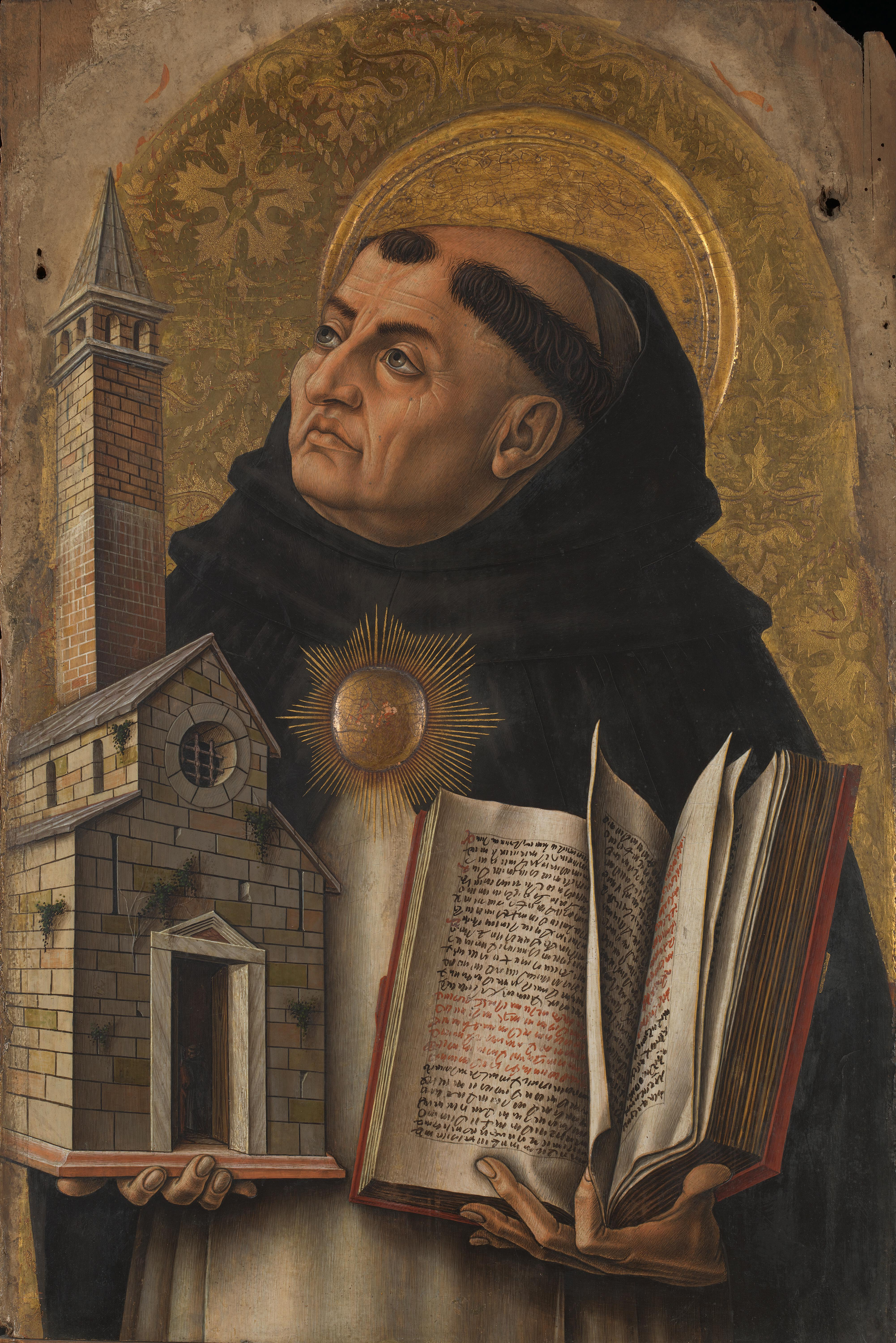Svatý Tomáš Akvinský najznámejšie citáty
„Láska je priateľstvo človeka s Bohom.“
Potvrdené výroky
Zdroj: MÜHS, Wilhelm: Slovom srdca, 365 myšlienok o láske. Bratislava: Nové mesto, 2000, s. 217. ISBN 80-85487-61-6
Svatý Tomáš Akvinský Citáty o láske
„Akýkoľvek skutok lásky si zasluhuje večný život.“
Potvrdené výroky
Zdroj: MÜHS, Wilhelm: Slovom srdca, 365 myšlienok o láske. Bratislava: Nové mesto, 2000, s. 195. ISBN 80-85487-61-6
„Láska nepozná hranice v raste, pretože má účasť na nekonečnej láske, ktorý je Duch Svätý.“
Potvrdené výroky
Zdroj: MÜHS, Wilhelm: Slovom srdca, 365 myšlienok o láske. Bratislava: Nové mesto, 2000, s. 117. ISBN 80-85487-61-6
„Kto je dokonalý v láske, je dokonalý v duchovnom živote.“
Potvrdené výroky
Zdroj: MÜHS, Wilhelm: Slovom srdca, 365 myšlienok o láske. Bratislava: Nové mesto, 2000, s. 12. ISBN 80-85487-61-6
Svatý Tomáš Akvinský Citáty o živote
Svatý Tomáš Akvinský citáty a výroky
God, give us grace to accept with serenity the things that cannot be changed, courage to change the things which should be changed, and the wisdom to distinguish the one from the other.
The Serenity Prayer (ca. 1942)
Potvrdené výroky
Varianta: Bože, daj mi pokojnú myseľ, aby som prijal veci, ktoré zmeniť nemôžem. Daj mi silu, aby som zmenil veci, ktoré zmeniť môžem. A daj mi múdrosť, aby som rozlíšil jedno od druhého.
„Nádej má štyri predpoklady: dobro, neľahké, budúce, možné.“
Prisudzované výroky
„Tam, kde je duchovné poznanie, je aj slobodná vôľa.“
Potvrdené výroky
Zdroj: Pre Teba, Bratislava: Lúč 2008, 27. týždeň.
„Všetky bytosti sa domáhajú dobra, no nie všetky poznávajú pravdu.“
Potvrdené výroky
Zdroj: Pre Teba, Bratislava: Lúč 2008, 42. týždeň.
„Pre človeka je prirodzené, že zmyslami dosahuje duchovné poznanie.“
Potvrdené výroky
Zdroj: Pre Teba, Bratislava: Lúč 2008, 28. týždeň.
Svatý Tomáš Akvinský: Citáty v angličtine
“Nothing is in the intellect that was not first in the senses.”
q. 2, art. 3, arg. 19
This is known as the Peripatetic axiom.
De veritate (c. 1256–1259)
“Grace does not destroy nature but perfects it.”
I, q. 1, art. 8, ad 2
Summa Theologica (1265–1274)
“Now, as the Word of God is the Son of God, so the love of God is the Holy Spirit.”
Sermon on the Apostles' Creed (c. 1273), Art. 8
“No evil can be excused because it is done with a good intention.”
Originál: (la) Nullum malum bona intentione factum excusatur.
Varianta: Variant translation: An evil action cannot be justified by reference to a good intention.
Zdroj: On the Ten Commandments (c. 1273)
Originál: (la) Lex naturae […] nihil aliud est nisi lumen intellectis insitum nobis a Deo, per quod cognoscimus quid agendum et quid vitandum. Hoc lumen et hanc legem dedit Deus homini in creatione.
Zdroj: On the Ten Commandments (c. 1273) Art. 1
Misattributed
Zdroj: This quote, frequently attributed to Aquinas, is actually a paraphrase of a passage (itself an elaborate paraphrase of Augustine) by Ptolemy of Lucca in his continuation of an unfinished work by Aquinas. The passage from Ptolemy reads: "Thus, Augustine says that a whore acts in the world as the bilge in a ship or the sewer in a palace: 'Remove the sewer, and you will fill the palace with a stench.' Similarly, concerning the bilge, he says: 'Take away whores from the world, and you will fill it with sodomy.'" (Ptolemy of Lucca and Thomas Aquinas, On the Government of Rulers, trans. James M. Blythe. Philadelphia: University of Pennsylvania Press, 1997, 4. 14. 6). What Augustine actually wrote (in De ordine, 2. 4. 12) was simply: "Remove prostitutes from human affairs and you will unsettle everything on account of lusts." Only Book 1 and the first four chapters of Book 2 of On the Government of Rulers (De Regimine Principum) are by Aquinas. The rest of the work was written by Ptolemy. (It even mentions the coronation of Albert I of Hapsburg, an event that occurred in 1298, twenty-four years after Aquinas's death.) The quote comes from Book 4, which was definitely not written by Aquinas.
Zdroj: De potentia (c. 1265–1266) q. 7, art. 9, ad 8
Zdroj: De potentia (c. 1265–1266) q. 7, art. 5, ad 14
“Perfect happiness can consist in nothing else than the vision of the Divine Essence.”
Zdroj: Summa Theologica (1265–1274), I–II, q. 3, art. 8 co
Zdroj: On the Governance of the Jews (c. 1263–1265) art. 4
“Truth is the ultimate end of the whole universe.”
Zdroj: Summa contra Gentiles (1259–1265) I, 1, 2
Zdroj: Commentary on the Metaphysics (c. 1270–1272), 1, 3; quoted in Josef Pieper, Leisure, the Basis of Culture (New York, 1952), p. 88
